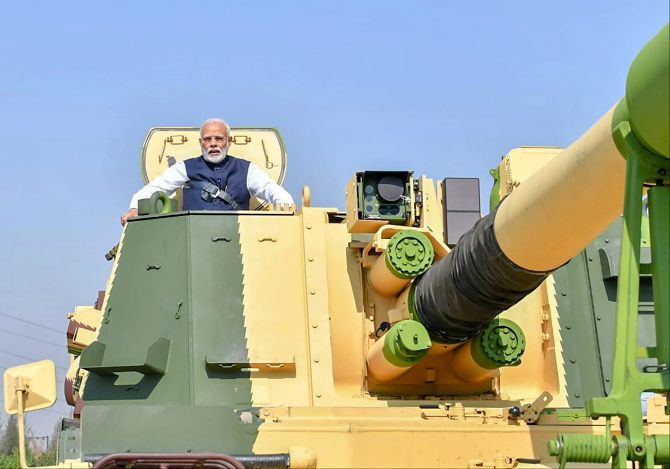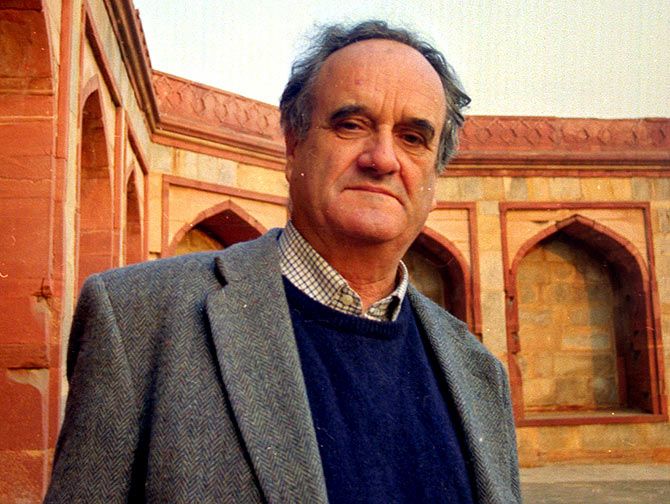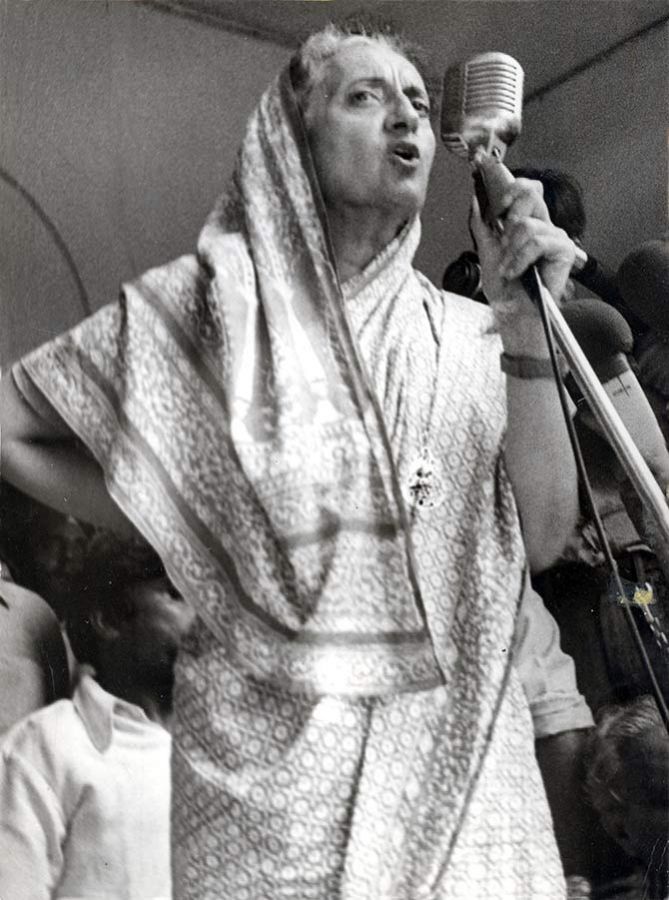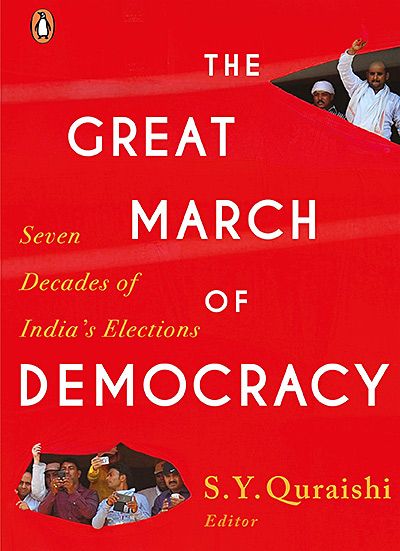Sir Mark Tully on the magic of Indian elections.
A fascinating excerpt from The Great March of Democracy: Seven Decades of India's Elections.

Looking back at my coverage of Indian elections, I am reminded of one of the most colourful Indian politicians I have known in my long career here spanning forty years -- the stalwart of Haryana politics, Chaudhary Devi Lal.
During the 1980 general elections, I went to see Chaudhary sahib on the day he and other leaders of the Janata Party were discussing their manifesto. He was obviously in a bad mood so I asked him what the matter was. "I don't like this table work," he growled. "All day sitting around having discussions."
"But the discussions were surely very important," I said. "You were deciding on the manifesto and what should be included in it."
"Fool!" Devi Lal shot back, "I can't tell you how many elections I have fought, but I can assure you I have never read a single manifesto!"
I can't remember how many elections I have covered, but I can say I never read the manifestos that carefully. Some might say that is a terrible admission, but I would reply that I can never remember a time when the voters I met as I travelled around India during election campaigns seemed concerned about manifestos.
They might well have been struck by one or two big-ticket promises like free electricity for farmers, or free mid-day meals for schoolchildren, but they didn't need to read manifestos to take those on board.
Voters, especially in the villages, were interested in working out which candidate would do the most for them, and that seems fair enough to me. Often, a voter would say of a sitting candidate, "I am not going to vote for him because he didn't do my work," or, "that candidate is from my caste so he might help me."
I would travel extensively during election campaigns asking voters their opinions. I always remember two opinions I got on one of my first forays into the countryside in an Uttar Pradesh election.
A labourer repairing a road said to me, "What does it matter who I vote for? Whoever I do choose will put my vote in his stomach."
In a village, whose MLA was the chief minister, dissatisfied voters complained, "If he can't provide us with kerosene during an election campaign when he's seeking our votes, what hope do we have of getting it afterwards if we do vote for him?"
One of the most common complaints I used to hear was about MPs and MLAs who during the election campaign promised to care for their constituencies, but after being elected were not seen until they next came to ask for votes.
After the coverage of the campaign came polling and, of course, the question of rigging.

There was a constituency where I was so confident there would be rigging that I sent the distinguished British psephologist, David Butler, there to witness it. The next day an article appeared in the London Times in which Butler said, in shocked tones, 'I have seen vote-stealing for the first time.'
Rigging is a much less common phenomenon nowadays because of the measures taken by successive chief election commissioners. However, moving police around the country to provide the security the commissioners regard as necessary has made elections much longer, which means it is harder for foreign journalists to keep up the momentum of their coverage.
Elections did demonstrate the extent of the BBC's audience and the trust voters had in its coverage. Saeed Naqvi tells the story of asking an elderly villager in UP which party was the strongest. The villager replied, "Don't ask me now, wait until I have heard the BBC."
On several occasions, I was accosted by angry candidates who wanted to know why the BBC had said their opponent was winning. I had difficulty in convincing them that the BBC did not forecast results of individual constituencies.
What had happened was that the candidates' opponents had tried to boost their claims by invoking the name of the BBC because they knew that it had a widespread reputation for authenticity. The phrase 'authentic news' was often used to describe BBC bulletins.
In the seventies, we, who were involved in the BBC World Service election coverage, had to be cautious to retain our reputation for authenticity. It would have been severely damaged had we forecast the result of an election and got it wrong, which was more than possible, but at the same time we had to give some indication of the way elections were going.
So I, at least, tended to hedge my bets. Time and again, I would be interviewed by those I was interviewing. They would ask, 'Which way do you think the wind is blowing?'

The only election in which I was able to give a confident answer to that question was the 1977 general election, which was held while the state of Emergency was still in force.
Then, wherever I travelled in northern India, I could feel the gale that would sweep Indira Gandhi out of power blowing. It was amazing how sudden that gale was and how short-lived.
Reporting the next general election, less than three years later, there was no gale sweeping Indira Gandhi back to power, but I did feel a wind blowing in her favour because the split in the Janata Party had left her opponents in disarray.
There is one major change that has taken place over the last twenty years in news and current affairs broadcasting -- improvements in technology.
In the seventies and the eighties, I had to either rely on the telephone or book a line. That involved going to the nearest All India Radio station.
The quality of the telephone call, even when boosted by the best technology available at that time, was often so poor that my dispatches had to be read in the studio rather than broadcast in my voice.
Nowadays, the ubiquitous satellite phone means correspondents can broadcast from anywhere. Mind you, there is a downside to this. Because it is so easy to broadcast live from the location of a story, the television viewer today is forever watching overexcited correspondents dramatising their stories by flapping their hands in all directions, and ad-libbing.

India is changing too. When I first covered elections, India was seen internationally as a land of irredeemable poverty. In television news and current affairs, vultures regularly featured as symbols of this poverty.
I remember once pointing out to a meeting of senior BBC editors that the peacock and not the vulture was the national bird of India. But now the pendulum has swung the other way and the leitmotif of foreign reporting on India is 'the country with the potential to become an economic superpower'. The West is seen as waning and Asia as rising.
India, with its size and its young population, is forecast to be one of the two giants of new Asia, alongside China.
This view of the present and the vision of the future is already influencing the foreign financial press to take a greater interest in all things Indian, including elections.
If, as most economists seem to think is likely, the Indian economy continues to grow at its present rapid rate, then surely the interest of the international media as a whole will grow too.
Elections will hopefully be seen as celebrations of the success of democracy after long years of struggle during which the Western media often wondered whether it would succeed.
Excerpted from The Great March of Democracy: Seven Decades of India's Elections by S Y Quraishi with the kind permission of the publishers, Penguin Random House India.










